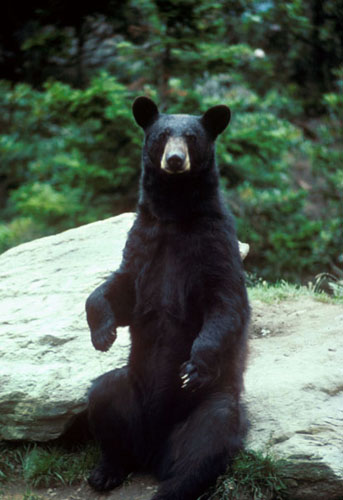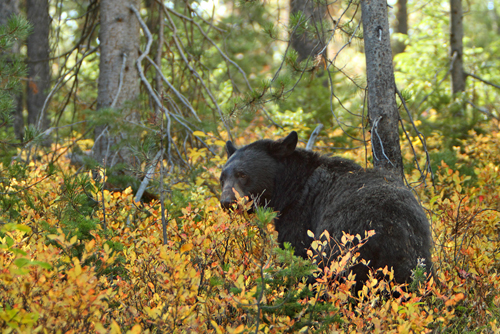
By Teresa Connolly
Got everything you need for your next hike or camping trip? Well how about your bear safety precautions? Whether you are new outdoor enthusiast or a well-seasoned veteran, take a moment to refresh your memory on the steps you should be taking to avoid an encounter with a bear.
As the most common species of bear in North America, Oregon’s Black Bear population is somewhere between 25,000 to 30,000 bears. At full size, black bears are usually about 5-6 feet long. Females typically weigh between 125-200 pounds and males about 200-250 pounds. Preferring forested areas, Black Bears in Oregon live in the Cascade Range and west to the Pacific Ocean, as well as in the Blue and Wallowa mountains. Black bears are not typically found in the arid regions of central and southeastern Oregon. Although their name would suggest otherwise, black bears can also be brown, cinnamon, blueish or, very rarely, white in color.
Even though bear attacks are minimal, it is always important to take precautions when out camping or hiking in bear country. Black bears tend to avoid humans but do have a very strong sense of smell, so improper food storage can attract unwanted attention. When preparing for your next hike or camping trip this summer, follow these tips to help you avoid an encounter with a bear.
Campsite checklist
- Store all food in airtight containers in the trunk of your car or in bear boxes
- Sleep at least 100 yards from your cooking and eating area
- Do not leave scented items such as soap, lotion, candles etc.outdoors or in tents. The strong odors could attract bears to your campsite
- Never leave food or pet food outdoors unattended or in tents
- Wash all cooking utensil immediately after use to help minimize odors and then store in air-tight containers in the trunk of your car or in bear-proof containers
- Dispose all garbage in bear-proof cans or pack it out in bear proof containers
- Never bury your garbage as bears will dig it up
- Keep campsite and campfires clean
Hiking safety
- Avoid trails that have bear tracks or fresh scat
- Make noise when hiking to avoid surprising a bear
- Keep dogs on leashes as a free-roaming dog might lead a bear back to you
- If you happen to see cubs, leave the area! The mother is usually nearby
- Don’t hike alone or at night. During these hot summer months, bears are more active at dawn, dusk or at night
- Be prepared and pack a flashlight or headlamp in case you do end up hiking in the dark
- Stay on the designated trail, steering clear of thick brush. This well help to avoid encounters with bears and to also protect the habitat
- Consider carrying bear spray with you as you hike, especially in areas known to have bears. This is a non-lethal spray to help deter bears from attacking. Keep your bear spray easily accessible, to be used at a moment's notice if a situation arises
Instead of finding yourself in a potentially dangerous situation, take the necessary precautions to make your hiking or camping trip safe. That way you can more thoroughly enjoy the natural beauty that Oregon has to offer.
 '
'
